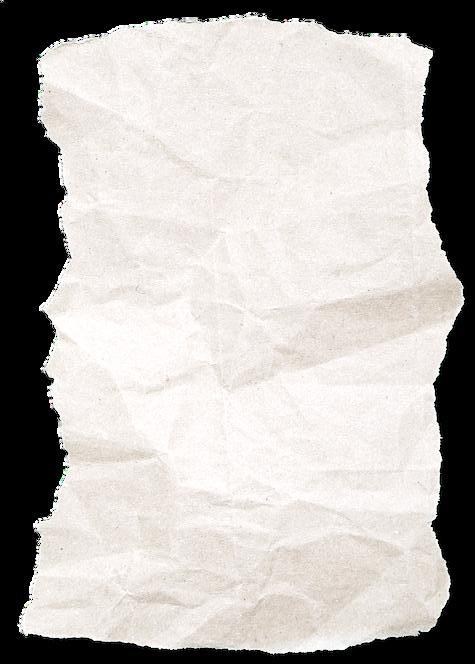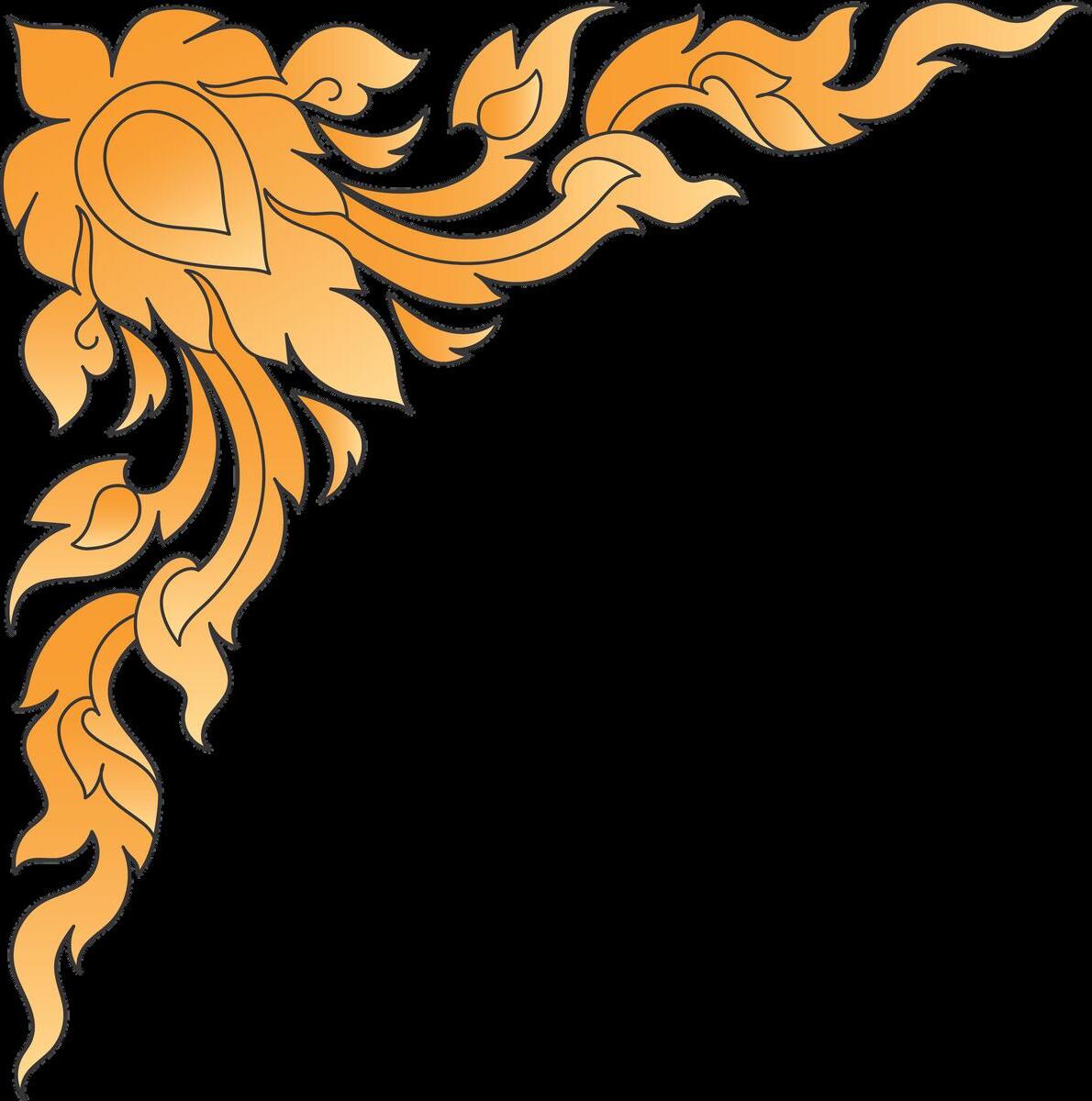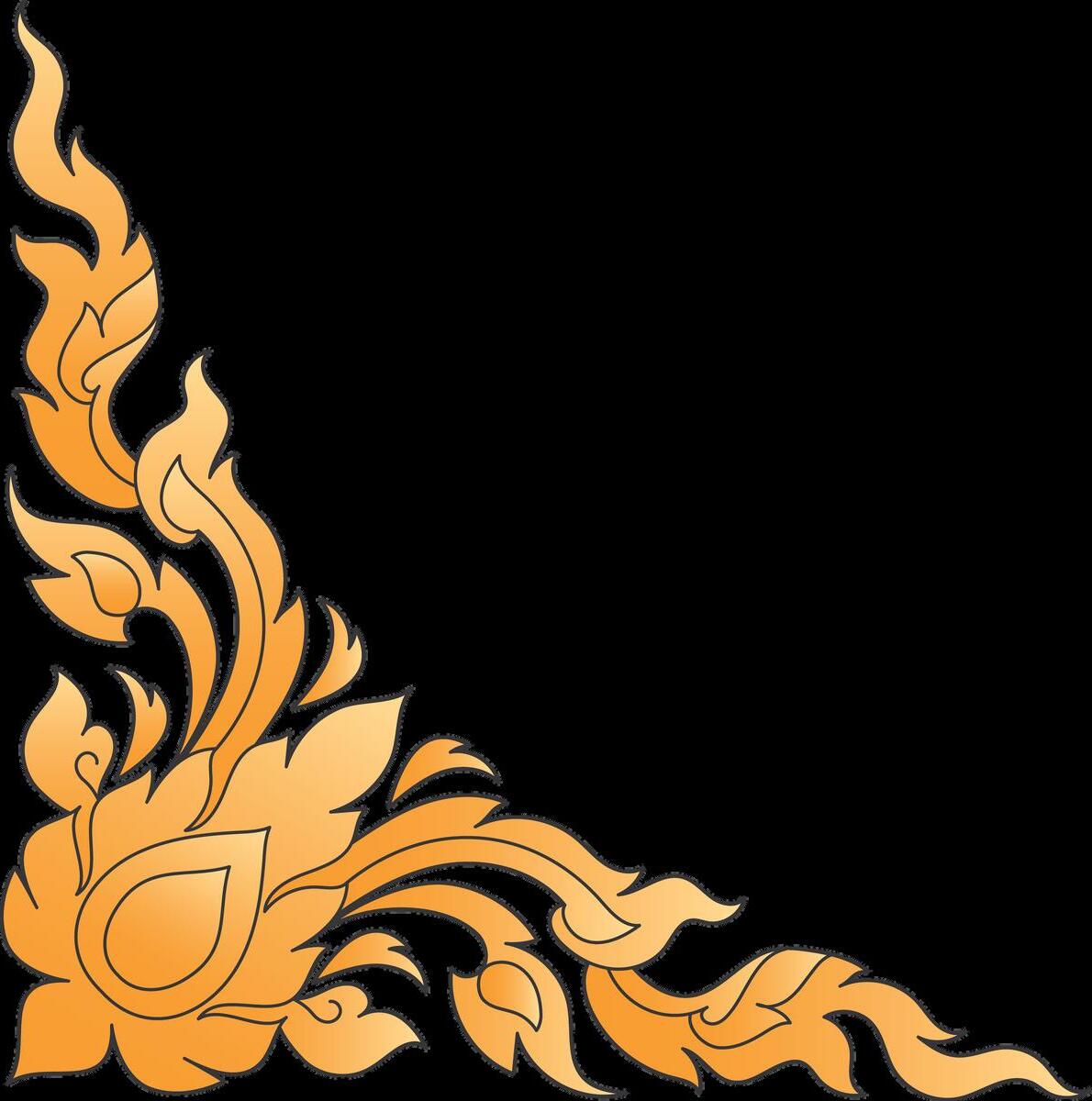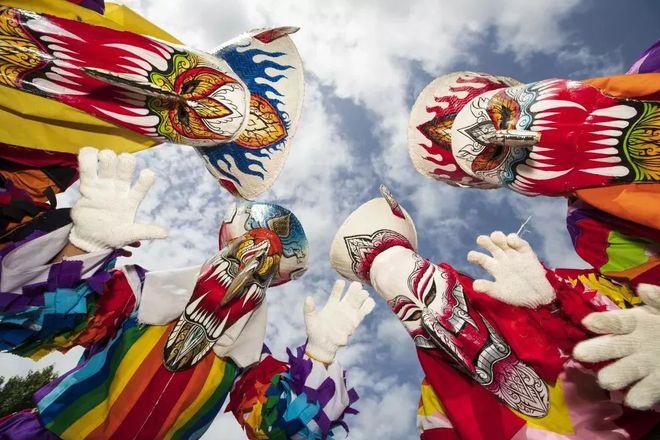





Hello everyone, I am Amy Xu, the editor-in-chief of this magazine. The six articles brought to you in this issue cover a variety of topics ranging from art to the environment, from the heaviest snake in the world to the manicure of the emperor's women.
Thailand is a very beautiful country and many tourists travel there every year. Thailand also has many very special festivals, and Ghost Face Festival is one of them. How did the Ghost Face Festival come about, and what are the interesting customs on that day?
In addition to Thailand, ancient China also had many interesting customs In ancient times, emperors' wives attached great importance to the protection of their nails. They wear very special armor Not only do they look great, but they are also a symbol of identity and status.
Indonesia is not far from Thailand and China. Here, there once was a very special snake. It is special because it is the largest and heaviest snake in the world. How big is it?
Spring is a good season for traveling. However, in recent years, many changes have taken place in the way Chinese young people go out to play. In addition to traveling to different cities, they also enjoy camping. Why is this?
We produce a lot of waste every day. We usually throw them into the trash. But then, where did they go and what happened to them?
The above is the summary of this issue I believe they will bring you a new reading experience.
Amy Xu

s a high scho hange studen m the U.S. She traveling and urious about ient cultures. thinks Dada i very wledgeable.

Lily is a student in the same high school as Amy. Her mom is Chinese and her Dad is from Ireland. Like her mom, Lily enjoys reading and cooking.
Dada is a high school straight-A student from China. He loves science, the universe, and everything about aliens.

Kevin is an exchange st from Austral likes sports a cars. He thin Amy is the c girl ever.


Ever wondered where your trash goes after you toss it out?
This article unveils the journey of discarded items, from trash bins to recycling centers, revealing their transformation into new products. Join the adventure as a discarded newspaper encounters a diverse cast of companions and undergoes a remarkable metamorphosis. Prepare to be amused and amazed by the secret escapades of everyday waste in this quirky tale!
Q1:“我”和我的朋友们是在哪
⾥被分开的?
Q2:“我”最后变成了什么?

我们每天都会去扔垃圾,但是你知道这些垃圾后来都去哪里了吗? 让我来告诉你一个关于垃圾的小故事吧!
我是一张报纸,今天有个人看完就把我丢到外面的大垃圾桶里了。
我在这里认识了很多朋友,有碎玻璃、旧地毯、旧毛巾、矿泉水
瓶、废电池等,还有一些人们吃剩的食物,比如苹果核和鸡蛋壳。
过了几天,来了一辆车把我们都带走了。
我们在那辆车里坐了很长时间,然后到了一个仓库。在这里,人们 把我和我的朋友们分开了。然后,我又遇到了很多新朋友:旧笔记 本、旧杂志和旧字典等。
我和新朋友们去了一个叫回收中心的地方。又过了几天,我们被 一辆大车带到一个工厂。在这里,我们被清洗、打碎,再重新变成 纸张。从工厂出来以后,人们把我放在商店,等顾客把我买回家。
我其他朋友门怎么样了呢?他们有的和我一样,变成新的样子,被
放在商店里等顾客来买;有的被埋了;有的用来发电等等。
我和我的朋友们都成了有用的东西。然而我听说有一些我不认识的
垃圾,人们把它们扔到河里、山上,还有别的地方。因为他们没有
回到垃圾桶里,所以人们没有办法定期回收他们。不过我也听说, 有时会有志愿者会上山收集他们。
作者:Victoria

垃圾
lā jī
trash / refuse / garbage
矿泉⽔
kuàng quán shuǐ mineral water
(果)核
hé
The hard part of a fruit that contains the kernel.
仓库
cāng kù
depot / storehouse / warehouse
埋
mái to bury
定期
dìng qī
at set dates / at regular intervals / periodic
收集
shōu jí
to gather / to collect

In daily Chinese language, this is a conjunction, which expresses a fixed sentence pattern of a transitional relationship, a transition in the meaning of the previous sentence.
Structure: Statement, 然 ⽽ + [Unexpected Outcome/Contrary Statement]
Examples:

Intermediate level 2 5 Mins
Dive into the vibrant Phi Ta Khon Festival, where Thai folklore meets festive fun!
Legend has it that a celestial prince, adored for his kindness, returns annually to join the spirited celebrations.
During this three-day extravaganza in May, locals don playful ghost costumes, paint their faces, and parade through the streets, blending reverence for tradition with elry. Join the and experience unique blend of nd community!


Q 1 : ⻤ ⾯ 节 是 为 了 纪 念 谁 的 ?
Q 2 : ⻤ ⾯ 节 有 什 么 习 俗 ?
有一天,王子变回神仙,从人 间回到天上了,所有人都很伤 心。自从他走以后,人们很想 念他,希望能再看到他。人们 的真诚感动了上天,王子再次 回到了人间。当地的人们很开 心,
甚至很多可怕的妖怪和鬼 都来迎接王子。
很久以前,有一位神仙来到泰 国,他变成了一位王子。当地 的人很喜欢这位王子,因为他 非常善良,还经常帮助人们, 人们都非常感谢他。



后来,人们就用一种特别的 方式:打扮成不同的鬼,在 这一天纪念王子的再次到 来。也用这种方式祈祷一年 都有好运。这一天就是泰国 的“鬼面节” 。

泰国的鬼面节有什 么 习 俗 呢 ? 这 一 天,所有人都会打 扮成不同的鬼。人 们会在脸上画很多 颜色,也会穿上奇 怪的衣服。他们还 会举办一场很大的 游行,人们也会一

边唱歌一边跳舞。
鬼面节在每年的5 月,一共有三天。
第一天和第二天是 大游行,同时选出 最喜欢的鬼,第三
天他们会去寺庙祈 祷。
[1]⽔灯节:It is a traditional festival in Thailand, held every November.
每 年 , 泰 国 的
鬼 面 节 都 会 吸
引 很 多 人 , 它
甚 至 成 为 除 了
水灯节[1]之外
人 们 第 二 喜 欢 的节日。
编辑:Kathy

神仙
shén xiān
Daoist immortal / supernatural entity
真诚
zhēn chéng
sincere / genuine / true
妖怪
yāo guài
monster / devil ⻤
guǐ ghost
游⾏
yóu xíng
to march / to parade / to demonstrate
寺庙
sì miào
temple / monastery
祈祷
qí dǎo
to pray

语法:“ ⾃从” 在汉语⽇常⽤语中,表⽰时间的起点,引进⾏为或状况的起始时间。它可⽤于主语 前,后多跟动词性词组或由“ 以后、以来”组成的短语。In daily Chinese language, it indicates the starting point of time and introduces the starting time of a behavior or situation. It can be used before the subject and is often followed by a verb phrase or a phrase composed of "later, since".
Structure: ⾃从+ [Starting Point] ,……
Examples:
1、⾃从来到湖南,我越来越能吃辣了。
2、⾃从⽤⼿机付款 后 ,我很少带现⾦出⻔。
Ever experienced a manicure quite like this? Picture the opulent world of ancient China's imperial harem, where the emperor's concubines indulged in luxurious nail care rituals. From growing and soaking nails in special herbal concoctions to dyeing them with vibrant hues of hibiscus, their beauty routines were as extravagant as their surroundings. But the ultimate touch? Adorning their nails with ornate guards, each adorned with jewels and intricate designs to signify their rank. Let's find out the ancient secrets behind these stunning manicures.

Advanced Level 1 7 Mins

Q 1 : 中 国 古 代 ⼈ 为 什 么 要 好 好 保 护 指 甲 ?
Q 2 : 后 宫 的 娘 娘 们 是 怎 么 美 甲 的 ?
古代中国的皇帝娶了很多女人。她们都住 在后宫[1]里。她们中最高贵的是皇后,然 后是其他妃嫔[2]。这些女人们不用工作, 只需要把自己打扮得很漂亮,让皇上喜欢 自己就可以了。

那后宫的娘娘[3]们都是怎么美甲的呢?

[3]娘娘:It is a collective name for the emperor's wives. 她们喜欢穿华丽的衣服、戴不同款式的珠宝。除了这些,她们还很喜欢做一 件事:美甲。它既能表示对父母的尊重,也能展现自己的地位。中国古代有 一种说法:身体是父母给的,最好不要损伤,这是对父母的尊重。指甲就是 其中一部分,所以对指甲也要好好爱护。另外,普通人需要劳动,所以指甲 都留不长。在那个时候,唯独有钱人不用劳动,能把指甲留长。所以指甲越 长,说明身份和地位越高。
[1]后宫:Refers to the place where the emperor's wives and concubines lived
[2]嫔妃:It is a general term for the emperor's other wives except the queen.
首先,她们会先让指甲长的很长,并 修剪好。
然后,就可以开始泡手了。在中国古 代,医生认识一些特别的植物。有些 植物可以让皮肤越来越好,让指甲越 来越亮。还有些植物,可以让身体有 香味。她们会经常用这些植物泡手。


第三步,染色。有一种植物叫凤 仙花[4],它很适合给指甲染色。 当然,那时的人们需要染很多次 才能让颜色越来越红。而且这样 做颜色也就不容易被洗掉。
第四步,戴护甲套。这是最重要的一步。根据每
个娘娘地位不同,戴护甲套的多少和长短也不一 样。一般来讲,皇后的护甲套是最长的,上面的 装饰也是最好的,通常会使用最贵的珠宝。其他 嫔妃的护甲套使用一般的珠宝,而且都没有皇后 的长。除了珠宝,护甲套上还会刻上好看的图 案,非常漂亮。


现在,我们在电视剧里也经常可以看到戴着 护甲套的演员们。除了看剧,女生们还会根 据这些护甲套的样式做美甲。虽然时代变 了,但人们对美的追求一直都不曾改变。
VOCAB VOCAB! !
珠宝 zhū bǎo pearls / jewels 损伤 sǔn shāng to harm / to damage / to injure 美甲 měi jiǎ manicure and-or pedicure
泡 pào to soak 护甲套 hù jiǎ tào something that goes over your nails to protect them

西的。In daily Chinese language, it is an adverb, which has fundamental characteristics that cannot be found in other people. At the same time, excluding any other person or other thing, there is no other person or other thing.
Structure: 唯独+S+V……..





InasmallparkinIndonesia,oncelurkedtheworld'sheaviest serpent,Guihua.Measuringastaggering14.85meterslongand weighing447kilograms,itwasthelargestsnakerecordedin nearlyacentury.Despiteitselegantname,witnessesspokeof itsterrifyinglylargejaws,capableofconsumingaperson whole.CapturingGuihuarequiredthestrengthof8to10men, showcasingitsformidablesizeandstrength.Sadly,Guihua metitsendin1912,leavingbehindonlytalesoftheaweinspiring,fearsomeserpent.Readthearticletofinddeeper storyofGuihuaanditsremarkablelegacy.
如果你问你的朋友们
他们最害怕的动物是 什么,我想很多人都
会说是蛇。有时候我 们看到一条不大也不
危险的蛇,我们也不
敢靠近它。我的朋友 琦琦是个女生,她却 很喜欢蛇。我一直以 为蛇都不会太大,但
是当她告诉我世界上 最大的蛇有多大的时
候,我惊讶的不行! 很多年以前,在印度 尼西亚[1]的一个小公 园里有过一条很大的 蛇。它有14.85米长、 447公斤重。这是近一
百年来我们人类发现 的世界上最大的一条 蛇,也是世界上最重 的蛇。
这条大蛇是在印度尼
西亚西边的一个森林 里发现的。这个森林 的树又大又多。那里 的人花了很大的力气 才把它抓住。抓住以
后他们把这条大蛇卖 给了一家公园。公园 的人想给这条大蛇取 一个名字。因为这条 蛇 身 上 的 花 纹 很 好 看,所以他们想到了 一种花的名字:“桂 花”。虽然它的名字 听起来很温柔好听, 但公园的人都说,桂 花张开大嘴的时候, 人 们 都 觉 得 非 常 害 怕。它的嘴非常大, 可以很轻松地吃掉一 个人。
听人们说,这条蛇非 常难抓。如果要想抓 住这条大蛇,需要8到 10个很强壮的男人一 起抓才可以。这条大 蛇是人们知道的世界 上最大、最重、最长 的 一 条 蛇 。 但 是 1912 年,这条大蛇在印度 尼西亚被杀死了,所 以现在我们没有办法 去看这条世界上最重 的蛇了。
蛇 shé
snake
靠近
kào jìn to be close to / to approach
惊讶
jīng yà
amazed / astonished ⼈类
rén lèi
humanity / human 抓
zhuā to grab / to catch
桂花
guì huā
osmanthus flowers
温柔
wēn róu
gentle and soft / tender
强壮
qiáng zhuàng strong
种品质。this is a concurrent sentence. When used in a sentence, more than one adjective can be used at one time, and it is also used to express multiple qualities of an item.
Structure: Subj. + ⼜ + Adj. 1 + ⼜ + Adj. 2
Examples:
1、这个房⼦⼜⼤⼜漂亮。
2、妈妈的头发⼜⿊⼜亮。

Let's talk about camping! Amidst the chaos of holiday travel, many are opting for a more serene escape, like camping in the outskirts of Beijing. It's a trend that's catching on with young folks, offering a chance to unwind amidst nature's embrace. But why the sudden love for camping? Well, think of it as a modern-day oasis, a 'third space' where urbanites can find solace away from the hustle and bustle. It's where friendships flourish, and introspection finds its home. Plus, camping these days isn't exactly roughing it out in the wild – it's more like a comfy getaway in nature's backyard. So, whether you're a seasoned camper or just thinking about it, grab your tent, pack your bag, and hit the road. Who knows? You might just fall in love with the great outdoors!
“今年‘五一’假期人们的出行需求集中释放,想到 高速公路、飞机、火车上和景点人挤人的场景,我最 终选择在北京郊区露营度假。”在北京工作的90后 小齐说,“在郊区露营,既能避开假期的人群,又能在 自然环境里放松,已经可以达到休假的目的了。”
现在,越来越多的年轻人选择露营的方式放松。从跟旅游团出门旅游,到自 驾游,再到郊区、公园露营,人们度假休息的方式正在逐渐改变。休息日的 公园里,支起帐篷、铺开野餐布,带上零食饮料露营也渐渐成为都市人生活 中必不可少的一部分。
为什么人们开始喜欢露营了?
美国社会学家欧登伯格曾提出,家庭居住空间为第一空间,工作场所为第二 空间,而第三空间的定义则是“中立的公共场所”。欧登伯格理想中的第三 空间,是建立在高度发达的社区生活之中,将各种不同背景不同想法的人联 系起来,从而实现跨界对话交流。
不过,在拥挤且快节奏的城市之中,这个第三空间更希望是一个能享受好友 陪伴,或是自己独处时不被打扰空间。于是,露营就成了现代都市人化解内 心情绪,寻求心灵寄托的第三空间。当你身处大自然的山水之间,抬头看见 的是蔚蓝的天空,自己的内心也会慢慢平静下来。感受到的,是大自然带给 你的简单且纯粹的快乐。
露营是更轻松自由的度假方式。如果是住酒店旅游,你必须在
早上七点起床吃早餐,然后出去坐车旅行,一切都是有具体时 间要求的。露营就不必,所有节奏都是你自己控制。最重要的 是,在整个旅程中与家人和朋友在一起。在放松的环境中有家 人和朋友的陪伴,你们的沟通也会变得更真实和温暖。
同时,今天的露营也不必牺牲舒适。因为今天的露营旅行并 不意味着你必须走很远的路,睡在荒野中,吃着沙子,像冒险
小说一样。你只需要在去露营前收拾好需要的东西,开上车,到郊区或者城 市特定的露营区就好。这里更安全也更方便。同时,随着露营的流行,露营 装备也层出不穷,不断满足甚至超越着人们的期待。这也让人们更能享受 露营的乐趣。
露营是一种不贵的旅行。虽然也可以豪华露营,但帐篷露营实际上是一种 相对便宜的短途旅行。因为不必支付住宿的费用,而是在可能需要支付一 些维护费用的区域搭起帐篷睡觉。至于使用的帐篷,这也是一次性的投 资。这也是人们喜欢它的原因之一。
其实,露营受到欢迎是经济下行、人们长期压力无处释放的结果。人们在 寻求一种又经济又能缓解压力的方案。不过不得不说,露营也确实给年轻 人带来了很深的滋养和慰藉。
看到这里的你,或许还没有尝试过露营,或许你还面 对着露营清单犹豫不决。下个假期你不妨试试,勇敢 地带上帐篷,背上背包,坐上你的车,向着露营地出发
。或许,你会是下一个爱上这项活动的人。
野餐
yě cān picnic
跨界
kuà jiè
to go beyond the border / to be transboundary
独处 dú chǔ to live alone / to spend time alone (or with a significant other)
化解
huà jiě to dissolve
荒野 huāng yě wilderness
滋养 zī yǎng to nourish
慰藉 wèi jiè to console / to comfort
语法:“不妨”
在汉语⽇常⽤语中,这是⼀个副词。它表⽰没有什么妨碍,
表 ⽰ 可 以 这 样 做 。 This is an adverb. It means there is nothing in the way, it means it can be done.
Structure: S. +不妨+V.
Examples:
1、在事情开始之前,我们不妨先约法三章。
2、如果你⼼烦,那不妨出去⾛⾛。

INTERMEDIATE LEVEL 1 5 MINS
Arsen, the newspaper seller, gets the jitters when a towering, scarfaced man starts haunting his spot.
Concerned for the lady taking over, he warns her about this "menace."Curious to know the rest? Well, go on, it's a hilarious tale worth uncovering!
Q1:阿森最近为什么很不踏实?
Q2:光头刀疤男跟卖报纸的女人 是什么关系?
阿森在学校旁边卖了很 多年的报纸。这儿只有 他卖报纸,而且报纸很 便宜,所以卖的很好。
阿森不但长的好看,而 且经常帮助别人,学校 的学生和老师都很喜欢 他。阿森也非常喜欢这 里。但是最近,他觉得 很不踏实,经常有一个 男 人 来 他 这 儿 走 来 走
去 , 看 看 这 儿 看 看 那 儿。那人是个光头,长 得很高,头上还有一道 刀疤,让人看着就觉得 很 害 怕 。 阿 森 也 很 害
对面稍微远一点的地 方卖报纸。
第二天,阿森看到有 个女人在他以前卖报 纸的地方卖报纸。一
天下来,女人的报纸 都卖完了。晚上女人 要回家的时候,阿森 走过去说:“你明天 还 是 到 别 的 地 方 卖 吧。” 女 人 问 : “ 为 什 么 呀?”


怕,于是,他跑到马路
“你还不知道呢,最
近经常有一个长得很 高、头上有刀疤的光 头男人来这儿。你长 的这么好看,我怕他 欺负你。”女人笑着 说:“没事,不用担 心。” 女人说完就走了。第 二天,女人又来卖报 纸。阿森走过去对女 人说:“你怎么不听 我的又来了呢?告诉 你,那个坏人看起来 很危险。我以前就是 在这里卖报纸,为了 安全,我都换到对面


远 一 点 的 地 方 去 了。” 女人笑着说,“谢谢 您的关心,不过您说 的那个坏人没有时间 来,他在家忙着准备 报纸呢。” “ 你 怎 么 知 道 ? ” 阿 森 吃 惊 地 问。 女人说:“他是我丈 夫 。 前 两 天 他 在 这 儿,是在给我找卖报 纸的地方呢。”
踏实
tā shi
firmly-based / steady / steadfast 光头
guāng tóu shaven head / bald head
⼑疤
dāo bā
scar from a knife wound
欺负
qī fu
to bully
This is a parallel sentence, expressing additive and progressive relationships. To connect two clauses, the order of the progressive relative clauses cannot be reversed, and the meaning of the second clause is further than that of the first.
Structure: Subj. + 不但 ⋯⋯ ,⽽且 ⋯⋯
Examples:
1、这个东西不但贵 ,⽽且难买.
2、她不但聪明,⽽且很幽默。



In the next issue, the following questions will be answered:
1
What is a day in the life of a panda keeper in China like?
Will tooth extraction make us look ugly?
3.
2. In China, what are the customs after the birth of a child?
4.
What are the characteristics of Chinese-style music?